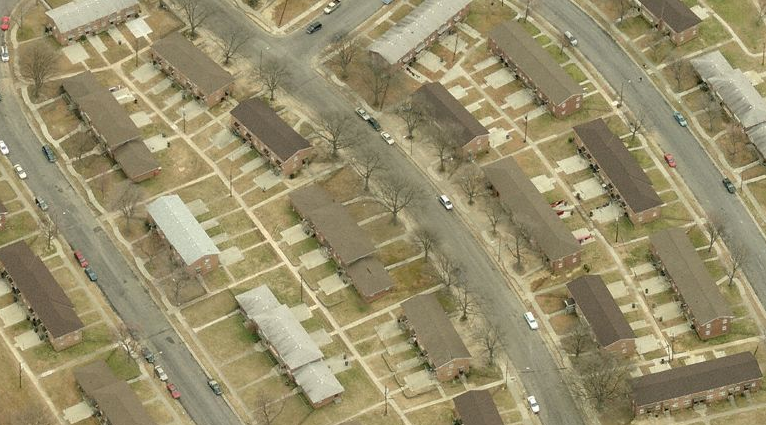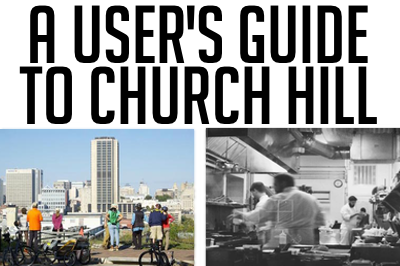RECENT COMMENTS

The health impact of concentrated poverty in the East End
The RTD has a long look at the health impacts of living in different parts of the city breaking out a piece on living in the poorest section of the East End:
Average life expectancy for someone who is born and remains their entire life in [census tract 202 / Fairfield Court] is just 66 years — almost 13 years less than the average U.S. life expectancy of 78.7 years. And almost 20 years less than someone who lives in the city’s more affluent neighborhoods in the West End, where average life expectancy is as high as 83 years.
There is no single cause for the differences in life expectancy. Rather, there are multiple factors, most of them beyond what the medical community is set up to tackle. […]
“Physicians can’t write you a prescription to move you into a better neighborhood,” said Patrick Krueger, an assistant professor of sociology and health and behavioral sciences at the University of Colorado-Denver. “They can’t write you a prescription to get rid of all the stress you have in the workplace. Physicians can’t write a prescription that fixes your bum marriage that’s falling apart because you can’t pay your bills or because you don’t have the resources to take care of your children the way you would like to.”
[…]
“It’s one thing not to know. It’s unconscionable to know and not try to do something,” said Newbille, who grew up in Whitcomb Court, a public housing project in the neighboring 6th District. […] “What I refuse to do is allow the enormity of it to preclude me from … strategically working on it,” she said of transforming the East End.
The other piece tackles the issue of concentrated poverty and the challenges to reconfiguring the public housing:
“The concentration of poverty and the deliberate concentration of poverty in Church Hill is extraordinary,” Campbell said. “We have 50 percent unemployment in the northern part of Church Hill. Thirty-one percent of the households in Church Hill do not have cars.
“We can just stack up causality with regards to the health of people in the East End,” said Campbell, also a member of a city anti-poverty commission. “The level of distress is incredible. It’s not just physical. It’s emotional,” he said. […]
“When you come across the Martin Luther King Bridge, we come into a whole new reality,” Richmond Mayor Dwight C. Jones said at a meeting last fall on transforming public housing. […]
At a community meeting in Creighton Court last fall, residents were adamant that any plan for transforming public housing had to address relocating residents.
“I’m 50-50 at this point,” said Marilyn Olds, president of the Creighton Court Tenant Council, during one of those meetings.
“I want to see better living conditions,” Olds said. “I don’t like the children that we’re producing. I don’t like what I see on the streets, and I don’t want to see us keep caving to this generation after generation. But, and there’s always a but, I’m concerned about the transition. Who’s going to come back and who’s not. And I’m really concerned about those who won’t be coming back.”






Note 2nd paragraph of the RTD story regarding the lack of fresh/healthy food in the corner stores. That’s the very first issue (and arguably, the most important issue,) regarding poor health in the East End.
There has got to be a way to make this work: fresh food in our corner stores. I was lucky enough to live in Brooklyn/NY (before the turn of the century.) We had a “green grocery” on every block, with fresh fruits and veggies stacked high right out on the sidewalk.
How come we can’t figure this out in RVA?
I think it has to do w demand and supply. And cost risk issues.. Fresh veggies and fruits spoil quickly. Chips candy and soda last for months.
@1 – Is this a supply issue or a demand issue? If it’s a supply issue, I would have thought at least one of the local corner markets would have figured it out by now. If it’s a demand issue, good luck changing it.
@3 – To your point, IMHO I believe it is a demand issue and I don’t think it will change. The corner stores will stock what sells and has the best margin. Like Catherine said above frest foods spoil quickly so there is more of a risk of lost revenues. The not so healthy stuff keeps much longer and there is much more of a drmand for that kind of item on the hill.
How much of this is poor math also? It doesn’t specify how the average lifespan was calculated but if it’s not excluding murders that would explain a lot. When you have 20 something males getting shot regularly, they probably make up a big portion of the “lifelong” project resident crowd. In other words, by the nature of the stat being used, you skew towards people with shorter lives.
A lot of this could just be sloppy stats…
Why is it people seem to feel like its ok to tell the less fortunate how they “should” eat? If folks want to eat Big Macs and fries everyday, let them. Given that many of these folks don’t have a lot to look forward to, a nice rich tasting meal is one of the few pleasures in life.
Next time someone thinks about whining about how other folks eat, stop and think how condescending this sounds. If its your kids it’s one thing. If its not, shut the fuck up.